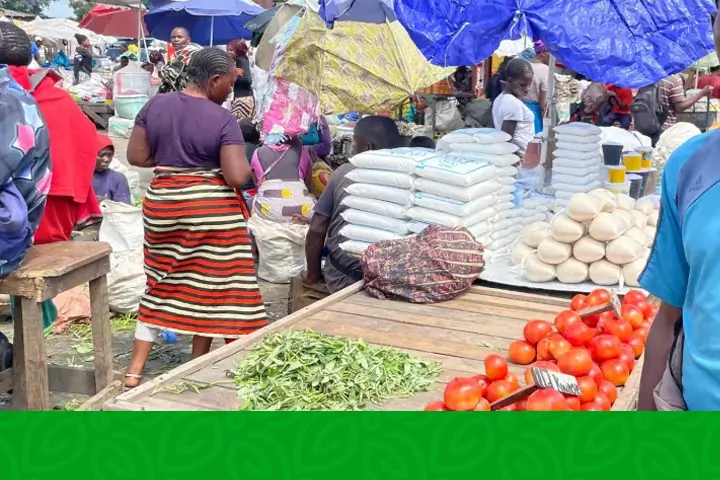
In the heart of Zambia, a local farmer named Mwalusaka Charles stands out as a true leader among his peers. Beyond just cultivating crops, he takes on the role of a mentor for 22 smallholders, guiding them through the Solidaridad Network’s system for agricultural education and training. Charles believes in sharing his knowledge, stating, “As a lead farmer, it’s my duty to teach them what I’ve learned. I must visit their fields when planting… I have to be invited to each and every farmer.”
Recently, Charles was part of an exclusive group of 20 farmers selected to attend a week-long food safety training program in Lusaka, organized by the Solidaridad Network. The initiative aimed to empower farmers with the essential knowledge and practices to ensure food safety throughout the agricultural value chain.
Friday Siwale, the dynamic program manager of Solidaridad Network in Zambia, fondly recalls, “Last year, around December, we brought in a consultant under Global Gap to train our lead farmers of fruit and vegetables in food safety.” The training focused on critical areas such as general hygiene, safe use of pesticides and fertilizers, and the significance of produce labeling for traceability. Ten government agricultural extension officers also participated in this program, strengthening the collaborative effort.
Armed with their newfound knowledge, these trained farmers, all leaders within the Solidaridad Network, returned to their local communities to share their learnings. According to Siwale, this initiative has already made a significant impact on over a thousand farmers across the regions of Chongwe, Katete, and Mazabuka.
Emphasizing the importance of safe food, Siwale says, “You must eat the food to feed you and not to poison you.” He further explains the network’s ongoing endeavor to establish food safety standards in Zambia, a country currently lacking such regulations. As part of this mission, a proposed draft of food safety standards has been developed through collaboration with various stakeholders and has been presented to the government for consideration.
Siwale elaborates, “The whole idea is that if [the proposed standards] pass… it will actually help a lot of farmers.” The absence of standardized food safety measures has been a significant challenge for small-scale farmers, hindering their ability to sell to supermarkets and limiting the potential of commercial farmers to export fruits and vegetables.
However, despite these obstacles, Charles remains optimistic. “We used to have losses – maybe out of 200 boxes of tomatoes, you can just sell 150… Now, because of very good handling and going through training this time, now we are making more profit,” he states.
The effects of this training are already evident within Charles’ farming community, offering a glimpse of a brighter future for the farmers of Chongwe. With the Solidaridad Network’s support and the government’s potential adoption of food safety standards, these farmers are taking significant steps towards ensuring safe, nutritious produce for the nation and beyond. By planting the seeds of safety, they are leading the way for a more sustainable and prosperous agricultural sector in Zambia.
Original Article from Food For Afrika
Stay updated with the latest farming tips and agriculture industry news from Africa by subscribing to our newsletter. Don’t miss out on valuable insights and updates. Follow us on Twitter, LinkedIn, and Facebook to join our farming community and stay connected with us.



















